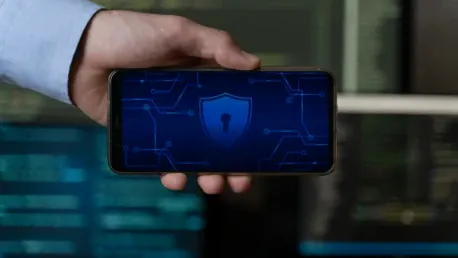In today’s digital age, small and medium-sized enterprises (SMEs) face unique challenges in maintaining robust cybersecurity measures. With limited financial resources and a heavy reliance on employee dedication, mobile security often becomes the overlooked link in their cybersecurity strategies. This article delves into the importance of mobile security for SMEs and offers practical solutions to mitigate cyber threats.
The Overlooked Importance of Mobile Security
The Unique Challenges Faced by SMEs
SMEs often struggle to balance operational efficiency with stringent cybersecurity practices. Unlike larger corporations, SMEs typically lack the financial resources to hire external consultants or invest in high-end cybersecurity tools. This financial constraint forces them to rely heavily on their employees, who are already stretched thin with their responsibilities. The urgency to complete tasks promptly often leads to security considerations being sidelined. The competitive nature of SME markets adds to this pressure, compelling employees to prioritize productivity over stringent security protocols.
Furthermore, the dynamic and flexible working environments typical of SMEs mean employees use multiple devices across various settings. This multifaceted approach to work, though highly effective in ensuring operational agility, can inadvertently open up several cybersecurity vulnerabilities. The simultaneous use of personal and professional devices for work-related tasks without proper security measures further exacerbates the problem, making mobile security indispensable for the long-term stability of these enterprises.
The Alarming Statistics
A significant consequence of this approach is the startling statistic that only 14% of SMBs have a cybersecurity plan in place. Despite small businesses making up 43% of cyberattack victims annually, many SMEs remain unprepared for the inevitable cyber threats. The internet’s integral role in modern business operations underscores the brutal reality that it is a matter of “when, not if” a business will be targeted. Without a comprehensive security strategy, SMEs are unknowingly exposing themselves to potential breaches.
The high percentage of attacks on small businesses highlights a disturbing trend: cybercriminals find SMEs to be easy targets due to their often lax security measures. This vulnerability is exacerbated by the businesses’ heavy reliance on an interconnected digital infrastructure, which, though facilitating unprecedented productivity and outreach, simultaneously puts them at higher risk. With hackers constantly evolving their tactics, SMEs lacking robust defense mechanisms are left at a stark disadvantage in this relentless cyber battlefield.
The Role of Mobile Devices in SMEs
The Close-Knit Working Environment
In SMEs, the close-knit working environment means that the impact of success or failure is highly visible. Employees often work out of hours and in varied locations to ensure tasks are completed, frequently using mobile phones for work-related tasks. Whether these devices are company-provided or personal, the informal nature of SME operations often leads to mobile security policies being overlooked. This constant mobility and extended use of mobile devices without stringent policies or guidelines can introduce multiple security vulnerabilities.
The rapid pace and high demands of SME operations push employees to find the quickest and most efficient means to complete tasks, often at the expense of security. This often involves connecting to unsecured public Wi-Fi networks, accessing sensitive company data from personal devices, and even sharing important information through unprotected messaging apps. This informal approach, fueled by the need for flexibility and speed, makes establishing a solid mobile security framework critical for protecting sensitive data and maintaining operational integrity.
Common Policy Gaps
Several common policy gaps can leave SMEs vulnerable to cyber threats. These include allowing employees to work on unsecured personal devices, using unprotected Wi-Fi networks, sending or receiving work-related messages via unsecured messaging apps, reviewing sensitive documents in public, and accessing corporate bank accounts from mobile devices in public settings. Additionally, many SMEs fail to adequately train employees on cybersecurity threats like phishing. These gaps underscore the need for well-defined mobile security policies to curb potential security breaches.
The lack of well-defined device and usage policies not only risks exposing critical business data but also heightens the probability of targeted phishing attacks. Employees, particularly those without proper training, might inadvertently click on malicious links, leading to a compromise of personal and corporate networks. Implementing comprehensive security measures, including encryption, secure Wi-Fi connections, and regular training sessions, can help mitigate these risks significantly and close the gaps that put businesses at risk.
Practical Solutions for Enhancing Mobile Security
Tailored Solutions for SMEs
Addressing these vulnerabilities requires solutions that are both practical and tailored to the financial and operational constraints of SMEs. Collaborating with cybersecurity providers experienced in working with SMEs or managed service providers (MSPs) can offer valuable support. These partnerships can help deploy anti-phishing protection on corporate or dual-use devices, enforce multifactor authentication (MFA), and develop strict access controls over corporate data access via mobile devices. Collaboration with external experts can provide SMEs with essential knowledge and resources without exorbitant costs.
Working with experienced cybersecurity providers enables SMEs to implement advanced security measures more efficiently. These specialists can offer targeted advice that aligns with the specific needs and limitations of smaller businesses, ensuring a balance between robust protection and operational feasibility. Additionally, adopting a flexible and scalable approach, such as incorporating cloud-based security solutions, can provide SMEs with real-time threat detection and response capabilities, enhancing their overall cyber defense landscape.
Developing a Comprehensive Mobile Security Policy
A significant yet cost-effective measure SMEs can undertake is developing a comprehensive mobile security policy document. This should be done in collaboration with IT and leadership teams. While not foolproof, a well-crafted mobile device code of conduct or best practices document can raise awareness among employees about the potential risks their actions might pose. This can close significant security gaps and foster a culture where security considerations permeate all levels of the organization. A thorough policy document delineates clear expectations and procedures, guiding employees on secure mobile device usage.
To be truly effective, the mobile security policy should encompass various aspects, including device management, application usage, data encryption, and secure communication guidelines. Periodic reviews and updates of these policies ensure that they remain relevant to evolving cyber threats and technological advancements. By institutionalizing these practices, SMEs can build a robust security framework that dynamically adapts to new challenges, significantly reducing their risk of exposure to cyber threats.
Fostering a Culture of Cybersecurity Awareness
Regular Security Awareness Training
Regular security awareness training tailored to the specific knowledge gaps within the organization is paramount. Adopting a “little and often” approach ensures that employees remain consistently updated on the latest cybersecurity practices without overwhelming them with information. This continuous education helps maintain a high level of vigilance and preparedness among employees. Training programs should cover essential topics like recognizing phishing attempts, secure password management, and safe use of mobile devices.
To maximize the effectiveness of these training sessions, companies should utilize interactive and practical methods, such as simulations and real-world scenario analysis. This approach not only engages employees but also enhances their ability to apply learned principles in everyday situations. Regular assessments and feedback mechanisms can gauge the training programs’ effectiveness, ensuring that employees internalize and consistently practice robust cybersecurity measures to protect the organization’s digital assets.
Building a Culture of Responsibility
In the current digital landscape, small and medium-sized enterprises (SMEs) encounter distinct challenges in upholding robust cybersecurity measures. Limited financial resources and a strong dependence on employee dedication often result in mobile security being the neglected aspect of their cybersecurity strategies. As mobile devices become increasingly integral to business operations, ensuring their security is crucial to protecting sensitive information and maintaining business continuity.
Cyber threats targeting mobile devices can have devastating consequences, such as data breaches, financial losses, and reputational damage. SMEs must prioritize mobile security to safeguard their assets and customer trust. Adopting practical measures such as educating employees about secure mobile practices, implementing mobile device management (MDM) solutions, and regularly updating software can significantly reduce the risk of cyber attacks.
By focusing on mobile security, SMEs can create a more secure digital environment, enabling them to thrive in an increasingly interconnected world. This article explores the importance of mobile security for SMEs and provides actionable strategies to counter cyber threats.









